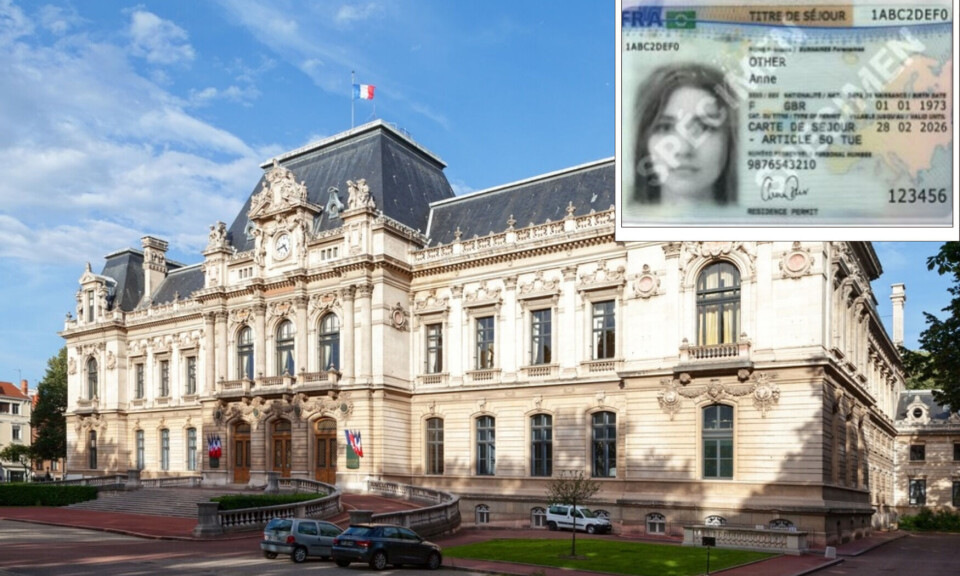-
‘Chauffer son char’: Québécois French phrases added to Google Translate
The new update includes idiosyncratic phrases and words unique to Québec
-
9 French expressions to use when there is hot weather
From 'the sun is like lead' to 'cooking like a pancake', here are some phrases to use as the temperature soars across France
-
Meet France's great garden acrobat
With its bright yellow and blue plumage, the Eurasian blue tit is easy to spot in the garden.
‘Anglicisms? They are French words we loaned to English after 1066’
A provocative linguist explains how the two languages have borrowed from each other for centuries

A linguist claims his new book, whose provocative title translates as English is not a language (it is badly pronounced French), is actually a paean to the versatility of English rather than a dig at the debt it owes to French.
Book is about exchange between English and French
Bernard Cerquiglini, a linguistics professor from Lyon, made headlines in the UK – including the front page of the Daily Star – when the book launched in France in March.
However, despite pointing out that 80,000 English words are borrowed from the French language, he says this is not a Gallic boast but a good way to show the rich history of exchange between the two languages.
He says that, historically, vocabulary travelled from continental Europe across the Channel but the tide has now turned and Anglicisms are now becoming more prevalent in France.
However, he claims, a lot of these words now being imported were originally French.
Read more: Seven of the most annoying Anglicisms used in French
Book title is ‘consciously provocative’
“Throughout history, English and French have walked together and fed each other,” Prof Cerquiglini told The Connexion.
“The book is a homage to the English language for its adaptable and welcoming nature.
“It borrowed words from French, Latin, Danish, etc. It is an extremely caring and benevolent language.”
He describes his book as: “In bad faith, arrogant, chauvinistic, brutal, French… but with British humour.”
He admits the title is “consciously provocative” but said: “I am not trying to convince one billion anglophones that they are speaking French.
“I am trying to use humour to explain the fundamental similarities and exchanges between French and English.”
England was ‘colonised’ by French language after 1066
Both languages have enriched the other, he added: French mainly in the 14th century and English from the 18th century onwards.
He playfully argues that French – whose strong influence on English began with the Norman invasion in 1066 – fertilised English so much that not much of it was left.
A classic example, he said, can be found in the words ‘pig’ (English) and ‘pork’ (French). The general population, which raised and killed pigs, knew the animals by that name. However, the Norman lords, who knew them only as the food on their plate, called them ‘pork’ from the French porc. The same is true for mutton (mouton) or veal (veau).
He terms this initial period “colonisation”, but the period that really interests him is the 14th century.
At this time, the population was no longer bilingual and English had established itself as the primary language, but it was French that was taught in schools.
“It was needed in order to work, to judge, to rule,” he said.
Read more: ‘To master the French language, grasp how it differs from English’
French words adopted by English are re-emerging in French
Prof Cerquiglini said he did not expect so much UK media interest, with articles appearing in The Times, Daily Telegraph and the Daily Mail, as well as the Daily Star.
His intent, he said, was to stimulate debate in France, where he has had just one review to date.
He believes the French have every reason to be proud of their language.
“After all, it is spoken across the globe and it is important to support it. I am particularly proud of how old it is,” he said.
“Of all Romance languages, it is the least influenced by Latin, borrowing as much from Gaulish as from Germanic and Celtic languages.”
Prof Cerquiglini is especially interested in words that were French, became English, and are now re-emerging in French.
One example that he gives is ‘glamour’.
It originally came from the old French word grammaire, and an ouvrage de grammaire meant a book that could only be read by experienced, knowledgeable people.
From there, it became synonymous with magic, then magical beauty, and finally with bewitching charm.
‘Understanding the history of a language will help you learn it’
Anglicisms are almost always met with opposition from purists, except where there is no French equivalent.
He said a personal pet hate was ‘compliance’ because of the pre-existing conformité, éthique and le respect des droits.
When asked for tips for anglophones learning French, he suggested: “Read my book. Learning the language while also understanding its history will not just give you a better grasp of French, it will give you a better command of English.”
Related articles
‘Unlike English there is a right and wrong way to speak French’
Which new words have made it into the latest French dictionary?
French language defenders sue Notre-Dame over English translations























